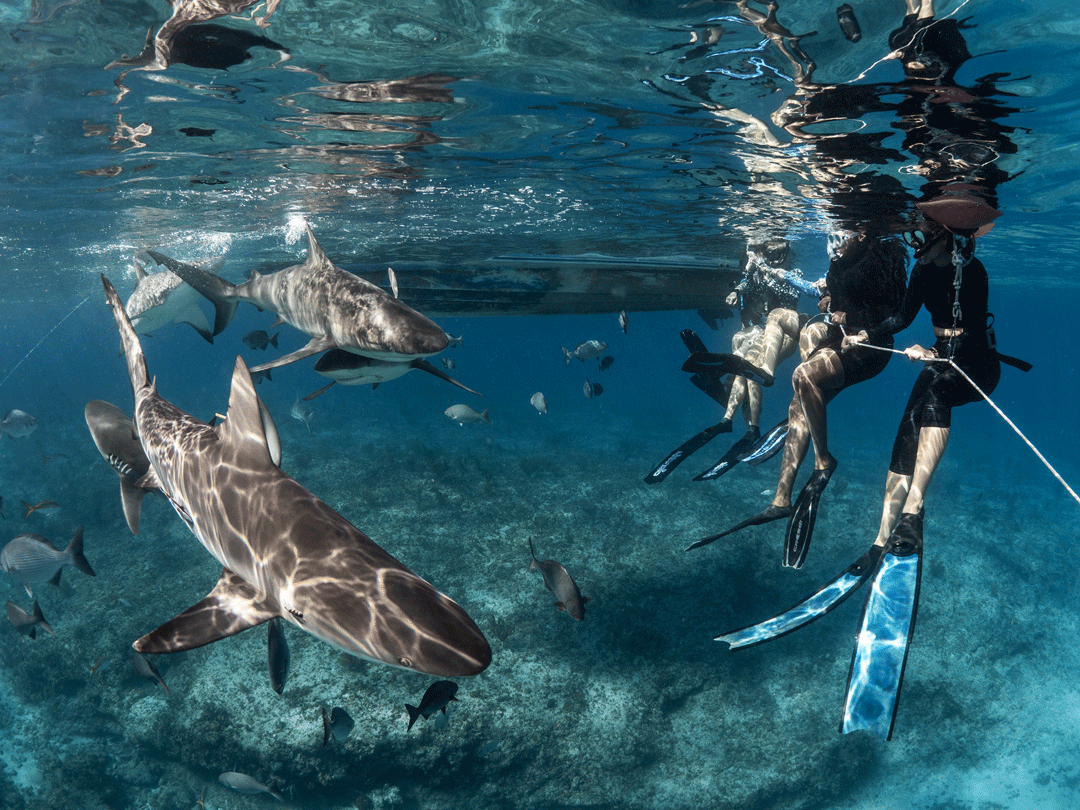A month at the Sharklab
“You is a Bahamian, what you doing swimmin’ with sharks?”
I think this is the most common question I received from the locals during my time in Bimini. Every time I spoke, the locals would immediately look at me and say, “You from Long Island.” So then, why am I, a born and raised Bahamian island girl, here in Bimini studying sharks? This question was even more puzzling when people learnt I’m studying Computer Science at McGill. However, since I was just old enough to learn how to swim, I have been fascinated by all marine life, turtles, sharks, whales, fish, conch; you get the picture. But in the Bahamas, sharks are still taboo creatures; if you see a shark, you get out of the water. So, imagine my anticipation, excitement and honestly, hesitation when we headed out to a reef shark dive on one of our first days here. Everything that I had thought I knew about sharks was changed during this experience and has continued to change over the past month.
I remember the feeling of holding a baby shark for the first time. It was surreal. This shark that I knew had so much power, was sitting so calmly in my hold. Not trying to attack, not angry, not aggressive, just swimming along peacefully in my hold. The same excitement was experienced when we went to Aya’s spot and fed the baby lemon sharks. These sharks find sanctuary in the mangroves from larger sharks during high tide. To have feisty baby lemon sharks bump into my legs during feeding was surreal. There were so many days like this that made me fall in love with sharks of all kinds.

Snorkeling with Caribbean reef (C. perezi) sharks. Photo by Sophie Hart | © Bimini Biological Field Station Foundation - SharkLab
My favourite day at the lab definitely had to be stingray catching. Great hammerhead sharks can sense a buried southern stingray using their ampullae of Lorenzini. These are jelly-filled pores on the sharks that can detect electrical pulses, in this case, heartbeats. The volunteers are definitely not that talented, so we all gathered up into two skiffs to search for stingrays. Once one was located, we would corral, trap, and then net them so that they could be used in one of the studies happening at the lab. This was only successful with active communication and cooperation, and the volunteers all worked together to catch 4 stingrays. We laughed together, yelled together and celebrated the captures together.
The Sharklab experience wasn’t just about learning in the field. It was also about gaining life skills, experiencing new things & making lasting connections with people who have similar interests and goals. It was about finding the strength to keep going even when you’re exhausted after a 5-hour longline set, realizing everything (especially duty day) is easier when you work together as a team, and accepting that saltwater showers are not actually that bad. My month at the Sharklab has affected my life in so many positive ways and I am so grateful for the Alf Thompson Memorial Scholarship for funding my time here at the lab. I am determined to someday use my experience at the lab to contribute to marine conservation in the Bahamas.
